Sex Reassignment Surgery (Female To Male) in Lithuania
Search and Compare the Best Clinics and Doctors at the Lowest Prices for Sex Reassignment Surgery (Female To Male) in Lithuania
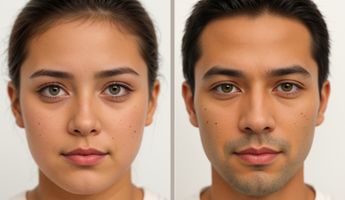
Find the best clinics for Sex Reassignment Surgery (Female To Male) in Lithuania
No clinics available
Thailand offers the best prices Worldwide
Price: $ 556

- Home
- Lithuania
Compare Before & After Photos of _procedure_photos.phpSex Reassignment Surgery (Female To Male)


Half-side view


Front view


Half-side view


Front view
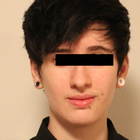

Front view


Front view
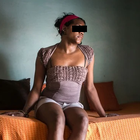
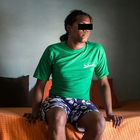
Front view


Front view
WHY US?
At Medijump, we're making medical easy. You can search, compare, discuss, and book your medical all in one place. We open the door to the best medical providers worldwide, saving you time and energy along the way, and it's all for FREE, no hidden fees, and no price markups guaranteed. So what are you waiting for?

Free

Best Price

Widest Selection

Risk-Free
What you need to know about Sex Reassignment Surgery (Female To Male) in Lithuania
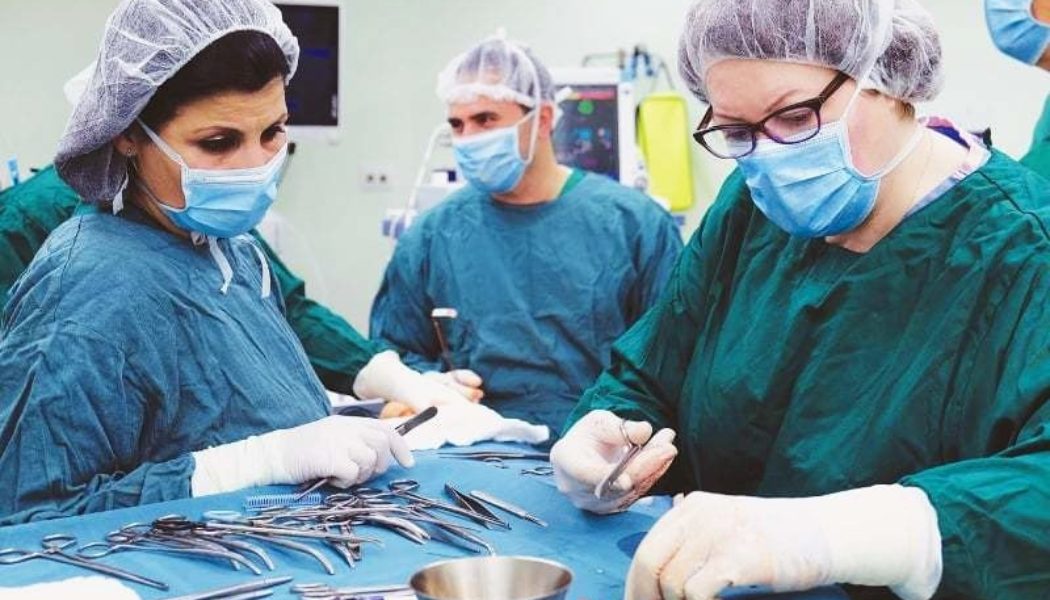
Some people are born male and some are born female. While there are some people who are transgender, whose gender identity does not match their assigned sex. Sex change surgery, also known as gender reassignment surgery (GRS) or sex reassignment surgery (SRS) is there to help these people. This is a surgical procedure that changes the sex of a person. It changes a transgender person’s physical appearance according to there identified gender. It treats gender dysphoria in these people. This includes both feminization and masculinization surgeries. In masculinization surgery, there are two domains:
- Top surgery
- Bottom surgery.
In top surgery, mastectomy is performed to remove the breasts and give your chest a more male-like contour. Bottom surgery involves increasing the length of the clitoris which is called metoidioplasty, production of a penis, and scrotum which are known as phalloplasty and scrotoplasty respectively, and removal of the uterus that is a hysterectomy. This surgery is not for everyone. A number of things are considered before opting for surgery. However, normal people with assigned gender can also go for this if they want to.
Before the operation, your assigned sex does not correspond to your gender identity. You suffer from gender dysphoria. You feel uncomfortable in your skin. However; after the surgery, you are a person of your desired sex. You are converted from a female to a male.
What is the cost of Sex Reassignment Surgery (Female To Male) in Lithuania?
Like any intricate healthcare process, the price for undergoing Sex Reassignment Surgery (Female To Male) is not a fixed figure in Lithuania. The final tally significantly sways due to issues like the patient's comprehensive health status, distinct surgical necessities, and the operating surgeon's level of proficiency. It's vital, too, to factor in the cost of post-procedure care, prescribed medicines, and extra treatments, all of which substantially contribute to the total expenditure.
Moreover, distinct clinics situated in Lithuania might provide an array of payment structures or offer financial aid alternatives. It's advisable to undertake thorough investigations or reach out to prospective clinics directly to obtain a precise cost prediction.
What does a Sex Reassignment Surgery (Female To Male) Procedure Involve?
Anesthesia is given to ensure that the patient does not suffer from pain during the surgery. Top and bottom surgeries are performed differently.
-
Mastectomy: It is performed in two ways. In one method, an incision is given around the areola and excessive fat and breast tissue are removed through it. The skin is left as it is for a year. It retracts in this period of time. This method leaves prominent scars. In the other method, excess skin is also removed along with the tissue and fat. This leaves fewer scars. After this, male-like the contour of the chest is obtained.
In the other step, female reproductive organs that are present inside your body are removed.
-
Hysterectomy: Total Hysterectomy is the removal of uterus and cervix. Another surgery, bilateral salpingo-oophorectomy (BSO) is performed to remove fallopian tubes. In this way, the entire female reproductive system is eliminated from the body.
After this, procedures for the construction of male reproductive organs begin. They include,
- Metoidioplasty: Androgenic hormones are given to increase the length of the clitoris. Length is increased to almost 1.6 to 2 inches.
- Phalloplasty: It is performed to create a penis or to increase the length of it. It can be done in 4 ways. All of these work on the same principle. A flap of skin is taken from a donor site of the body such as an arm or abdomen to make a penis out if it. It is joined to the urethra. This is the most complicated step of GRS. An erectile prosthesis is inserted into the penis to achieve an erection.
- Scrotoplasty: Scrotum is produced from labia majora and prosthetic testes are inserted into it.
How Long Should I Stay in Lithuania for a Sex Reassignment Surgery (Female To Male) Procedure?
It is a long procedure involving a number of surgeries. There is top surgery and bottom surgery. Mastectomy takes 2 to 3 hours in the operation theatre. While bottom surgery requires more time. It takes 8 to 10 hours for a female to male GRS. You should plan to stay in the area for at least 14 days after your Procedure, During this duration, your health conditions are monitored regularly and your stitches are removed after 10 to 14 days. You can go home when allowed to by your physician.
What's the Recovery Time for Sex Reassignment Surgery (Female To Male) Procedures in Lithuania?
You will have to take 2 weeks off work. After 2 weeks, you can start a light activity and can go back to office work. A Patient will need more time to get back to physical work. You can start strenuous activity 4 to 6 weeks after bottom surgery. Pain killers are given in this period to deal with moderate pain. Scars take some time to fade away. It can take years after the surgery to settle both physically and psychologically.
What sort of Aftercare is Required for Sex Reassignment Surgery (Female To Male) Procedures in Lithuania?
Following points should be considered to look after you post-surgery:
- Go for regular check-ups.
- Take your medicines as and when prescribed by the doctor.
- Live with someone who takes care of you while you recover.
- Abstain from sexual activity till allowed by your doctor.
- Do not take a bath or shower with bandages intact. It can cause infection.
- Avoid strenuous exercise in the early few days after surgery.
- Do not lift heavy objects; it puts pressure on your stitches.
- Avoid excessive movement. Take a rest.
What's the Success Rate of Sex Reassignment Surgery (Female To Male) Procedures in Lithuania?
The success rate of Sex Reassignment Surgery (Female To Male) within Lithuania depends on a spectrum of elements. Such factors encompass the proficiency and prior expertise of the surgical unit, the comprehensive health condition of the person, their mental readiness, and compliance with the suggested after-treatment attention. An abundance of research has pointed out that a majority of individuals who choose Sex Reassignment Surgery (Female To Male) acknowledge a marked enhancement in their lifestyle quality, elevated mental health, and a noteworthy contentment level with the physical transformations.
According to a study, 97% of the people who went through this surgery found their results satisfactory. You need to be sure before opting for it, as it is a lifetime decision. GRS is mainly for the treatment of dysphoric and transgender people.
Are there Alternatives to Sex Reassignment Surgery (Female To Male) Procedures in Lithuania?
The following are some alternatives to sex reassignment surgery:
- Hormone replacement therapy: this therapy aids in changing your secondary sex characteristics according to your desired sex. In the case of female to male sex change, testosterone is given. This induces hair growth and coarseness of voice. It reduces breast growth and changes in fat distribution in your body. It also stops menstruation.
- Altering physical appearance: you can alter your physical appearance, your dressing, your hair, your makeup in accordance with your desired sex. Do regular exercises to build up muscle mass which will make you look like a male.
- Psychological counseling: it will make you handle your personality. Gender reassignment surgery cannot be reversed. Therefore, you should make your decision wisely.
- Cosmetic surgery: it is a wide field covering a number of domains. It can alter your facial features, your body fat, your waist, your stomach, your chest to transform you into your desired gender. You can go for liposuction, mastectomy, Botox, fillers, Rhinoplasty, etc.
All of the methods, mentioned above are not permanent but are helpful. For permanent change, you have to go for sex reassignment surgery.
What Should You Expect Before and After the Procedure
Prior to initiating the Sex Reassignment Surgery (Female To Male), it is necessary to ensure each individual undergoes thorough psychological analysis and counseling. These checks serve to affirm the patient's emotional readiness and ability to cope with the aftermath of the procedure. In addition to mental health evaluations, multiple medical assessments are implemented to inspect their overall health state. Recognizing any pre-existing health issues is of utmost importance as they can potentially impact the result of the surgery. Regularly scheduled consultations with knowledgeable healthcare professionals are fundamental to this process. These meetings will entail in-depth explanations and discussions to help formulate a holistic understanding of the entire procedure and its ensuing effects.
After the execution of the surgical procedure, there's a need for mental readiness for an extensive recovery period. This stage typically demands diligent post-procedure care and major lifestyle adjustments. Surgical recovery isn't typically a swift process - it's a path that entails physical changes and lifestyle adaptations, necessitating a period of adjustment for the patient. The adoption of healthy habits becomes particularly important during this period. Activities like regular physical activity, adhering to a nutritious diet, and incorporating stress-relief practices are proven to carry several benefits. Moreover, in addition to the emphasis on physical recuperation, mental health should also be prioritized equally.
What are Potential Risks of Sex Reassignment Surgery (Female To Male)?
Each surgical procedure comes with inherent risks and potential complications, including Sex Reassignment Surgery (Female To Male). These might encompass general surgical risks such as infection, bleeding, or adverse reactions to anesthetic drugs. Specific to Sex Reassignment Surgery (Female To Male), there may also be healing-related risks, which could result in necrosis or lackluster cosmetic outcomes. Educating oneself about the possible complications of surgical procedures is beneficial for better preparation.
Additionally, extended exposure to hormonal treatment might escalate the risk of cardiovascular ailments or osteoporosis. There could also be mental health concerns such as depression or anxiety, which may spring from society's responses or personal adaptation to a new identity. Frequent consultations with a healthcare professional are essential to keep track of and mitigate any possible risks or complications.
Whilst the information presented here has been accurately sourced and verified by a medical professional for its accuracy, it is still advised to consult with your doctor before pursuing a medical treatment at one of the listed medical providers
No Time?
Tell us what you're looking for and we'll reachout to the top clinics all at once
Enquire Now

Popular Procedures in Lithuania
Prices Start From $497

Prices Start From $1,552

Prices Start From $500

Prices Start From $1,000

Recommended Medical Centers in Lithuania for procedures similar to Sex Reassignment Surgery (Female To Male)

- Interpreter services
- Translation service
- Religious facilities
- Medical records transfer
- Medical travel insurance
- Health insurance coordination
- TV in the room
- Safe in the room
- Phone in the room
- Private rooms for patients available

- Interpreter services
- Translation service
- Religious facilities
- Medical records transfer
- Medical travel insurance
- Health insurance coordination
- TV in the room
- Safe in the room
- Phone in the room
- Private rooms for patients available

- Interpreter services
- Translation service
- Religious facilities
- Medical records transfer
- Medical travel insurance
- Health insurance coordination
- TV in the room
- Safe in the room
- Phone in the room
- Private rooms for patients available

- Interpreter services
- Translation service
- Religious facilities
- Medical records transfer
- Medical travel insurance
- Health insurance coordination
- TV in the room
- Safe in the room
- Phone in the room
- Private rooms for patients available

- Interpreter services
- Translation service
- Religious facilities
- Medical records transfer
- Medical travel insurance
- Health insurance coordination
- TV in the room
- Safe in the room
- Phone in the room
- Private rooms for patients available

- Interpreter services
- Translation service
- Religious facilities
- Medical records transfer
- Medical travel insurance
- Health insurance coordination
- TV in the room
- Safe in the room
- Phone in the room
- Private rooms for patients available

- Interpreter services
- Translation service
- Religious facilities
- Medical records transfer
- Medical travel insurance
- Health insurance coordination
- TV in the room
- Safe in the room
- Phone in the room
- Private rooms for patients available
Sex Reassignment Surgery (Female To Male) in and around Lithuania
About Lithuania
Lithuania is an Eastern European country and is the largest and most populous of the three Baltic States. The country has a population of 3 million people, capital and largest city is Vilnius. There are only 3 Hospitals in Lithuania that are JCI accredited and all 3 can be found at the capital.
Lithuania welcomes an ever-increasing number of medical tourists each year, many of which travel for Sex Reassignment Surgery (Female To Male) procedures. The biggest attraction of Lithuania has to be the cost. Once you are there it is very affordable to eat, drink and get around and the prices from private clinics for medical treatment are extremely competitive. Come from within Europe on a low-cost airline and you will probably pay for your treatment and your holiday for less than your procedure would have cost at home.
Popular Parts of Lithuania
Although Lithuania is one of the lesser known countries of Europe, the country is actually a beautiful destination. Lithuania is home to incredible castles, lakes, forests, and landscapes.
- Vilnius: The capital of Lithuania is a city of churches. It is a dreamy city especially under the golden glow of summer sun. The city is often referred to as one of the cheapest city breaks in Europe. Trendy bars, hills, beautiful architecture, and fascinating history all makes this city an amazing destination. Hot-air balloons above Vilnius are also an impressive sight.
- Kaunas is the second city in Lithuania and is probably the coldest city in the country. Most tourists’ attractions in the city are within walking distance, making it a pleasant city to explore. The street in Old Town is packed with interesting architecture and hidden attractions.
- Druskininkai is filled with health spa amenities. Tourists will find countless natural attractions such as mineral water and curing mud. The city offers many outdoor and leisure activities such as river canoeing, cycling, adventure park with rope obstacles, and ski.
- Nida is a peaceful fishing village. It is a popular destination for tourists looking for some downtime, it has beautiful panoramic views. It is also home to the highest moving sand dunes in Europe. The Dead Dunes is probably the most famous spot in Nida.
Weather and Climate in Lithuania
Lithuania is at its best in summer when the days are warm and the Baltic Sea is swimmable. The country is swarming with tourists during this season. Summer starts from June until August; the average temperature is around 20 °C during the day and 14 °C during the night.
Spring arrives late, usually starts in April and finishes in May. Spring makes the country look even more beautiful with blossoming flowers and cherry trees. The temperature is usually cool.
Autumn has many sunny days and adds more color to the country. Autumn starts in September and lasts for two months. The nights in autumn are chilly, and the temperature usually drops to 0.1 °C in late November.
Winter is especially cold with an average temperature of around -6.6 to -2.8 °C. Some winters can be even colder with the average temperature dropping as low as -20 °C.
Getting Around in Lithuania
Vilnius International Airport is the largest airport in Lithuania. It connects the country with European cities. The airport is the hub for air Baltic and Get Jet Airlines. Budget airlines such as Ryanair and Wizz Air also operate flights from this airport. Other international airports are Kaunas International Airport, Palanga International Airport, and Šiauliai International Airport. The airports in Lithuania do not serve domestic flights.
Vilnius airport taxis are available and can be found in front of the arrivals terminal. The taxis are comfortable and affordable. All taxis accept payment by cash or credit card, a journey to the city center should cost around 10 EUR to 18 EUR. The city bus is a more cost-effective option to travel to Vilnius. A single ticket costs 1 EUR and can be purchased on the bus.
Getting around in Lithuania by car is the best way if you wish to visit many destinations. Lithuanian roads are among the best in Eastern Europe. The country has four-lane highways connecting Vilnius, Kaunas, Klaipeda, Panevėžys, and Palanga.
Intercity buses dominate the system of Lithuanian public transportation. Buses link all major cities and smaller towns. Buses between big cities are very frequent and usually leave every 15 minutes. Bus tickets can be purchased in the bus station or directly from the bus driver. Trains in Lithuania are good value but rather slow. Riding a bicycle is a nice way to get around inside the cities. Most roads are kept in good condition. Bike hire is available across all major cities and several small villages.
Tourist Visas in Lithuania
Citizens of the European Union, the United States, Canada, Australia, and Britain are granted visa-free entry to Lithuania and may stay for up to 90 days. Other foreign nationals must apply and obtain a visa before entering Lithuania. It is advisable to contact the local embassy to check visa requirements for Lithuania.
Lithuania is part of the Schengen Area, those who already have a Schengen visa do not have to apply for a new visa to enter Lithuania. A passport valid for at least three months beyond the length of stay is required by all visitors.
Additional Information
- Local Currency: The local currency is the euro. Lithuania adopted the euro in 2015. 1 USD is equivalent to 0.88 EUR.
- Money & Payments: ATMs are available in cities and towns, even in small villages. Most banks will exchange your money, but the easiest way is to withdraw cash from an ATM. Most restaurants and hotels accept credit cards (mostly Visa, MasterCard, and American Express). Always make sure to carry cash for small purchases such as museums and markets. Tourists can tip 10% in restaurants, always tip with cash even if you’re paying by credit or debit card. Taxi drivers do not expect a tip, but it is common to add a couple of euros.
- Local Language: Lithuanian is the official language. English is widely spoken by younger generations. The older generations usually only have very basic English skills. Most people know Russian or at least very basic Russian. Polish is also understood in certain areas. German is also spoken in Palanga, Neringa, and other major cities.
- Local Culture and Religion: The predominant religion in Lithuania is Christianity; with around 77% of the population is Catholic. There are also small groups of Jews, Muslims, as well as other faiths.
- Public Holidays: As a Christian country, Lithuania celebrates Christian religious holidays such as Easter, Christmas Eve and Christmas. Lithuania has little traditions to celebrate its national patriotic holidays. The country hosts many annual and unique festivals all-year round. Galapagai Rock Music Festival in July, Palanga Smelt Festival in February, Vilnius Festival in June, Trakai Middle Age Festival in June, and Vilnius Film Festival in late March to early April.
Popular Searches
- Plastic Surgery in Thailand
- Dental Implants in Thailand
- Hair Transplant in Thailand
- Breast Augmentation Thailand
- Gastric Sleeve in Thailand
- Gender Reassignment Surgery in Thailand
- Laser Hair Removal in Bangkok
- Botox in Bangkok
- Dermatology in Bangkok
- Breast Augmentation in Bangkok
- Coolsculpting in Bangkok
- Veneers in Turkey
- Hair Transplant in Turkey
- Rhinoplasty in Turkey
- Stem Cell Therapy in Mexico
- Rhinoplasty in Mexico
- Liposuction in Mexico
- Coolsculpting in Tijuana
- Rhinoplasty in Korea
- Scar Removal in Korea
- Gastric Sleeve in Turkey
- Bone Marrow Transplant in India
- Invisalign in Malaysia
- Plastic Surgery in the Dominican Republic
- Tummy Tuck in the Dominican Republic
- Plastic and Cosmetic Surgery in Poland
- Rhinoplasty in Poland
- Hair Implant in Poland
- Dental Implants in Poland
- IVF in Turkey